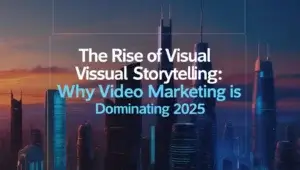If you’re a business owner or marketer wondering how to maximize your online presence, you’ve likely faced the question: Should I focus on SEO or paid ads? This is a critical decision, as it shapes how you attract, engage, and convert customers online. Both search engine optimization strategies (SEO) and search engine marketing (SEM) through Google paid search have unique advantages, but the right investment depends on your goals, timeline, and budget.
In this article, we’ll break down the strengths of each, explain where your money goes, and help you make an informed decision that gives you the best return on investment (ROI).
What is SEO (Search Engine Optimization) and Why Does It Matter?
SEO, or search engine optimization, is the practice of improving your website’s visibility in organic (non-paid) search results on Google, Bing, and other search engines. A search engine optimization uses techniques like keyword research, on-page optimization, technical SEO, content creation, and backlink building to improve rankings over time.
SEO matters because it brings long-term, sustainable traffic to your site. Unlike ads, which stop the moment you pause spending, SEO efforts continue to pay off even after the work is done. High-ranking pages can deliver consistent leads and sales, helping you build brand authority and trust.
What is Paid Search (Google Paid Search) and Why Use It?
Google paid search falls under search engine marketing (SEM), where businesses pay for ads that appear at the top of search results. These are the sponsored listings you see when you search for products or services. Paid ads offer instant visibility—you can launch a campaign today and start getting traffic within hours.
The key benefit? Speed and targeting. With paid ads, you control who sees your ad, when, and for what keywords. It’s ideal for promotions, product launches, or driving immediate conversions. But remember: once you stop paying, the traffic stops too.
SEO vs. Paid Ads: Which One Should You Choose?
Let’s break this down clearly:
Factor | SEO | Paid Ads |
Cost Over Time | Lower over time; upfront investment pays off later | Ongoing cost; you pay per click or impression |
Speed | Slow to build; takes months to see significant results | Fast; traffic can start within hours of launching a campaign |
Sustainability | Long-lasting; rankings hold even if you pause optimization | Short-term; traffic stops when the budget runs out |
Trust Factor | High; users trust organic results more than ads | Moderate; some users skip ads, preferring organic listings |
Control & Targeting | Less precise; relies on broader content strategies | Highly precise; you can target by location, device, time, demographics |
Direct Answer
If you want long-term growth and sustainable traffic, invest in SEO through a skilled search engine optimization. If you need immediate results or have a time-sensitive promotion, Google paid search and search engine marketing are the better choice. Ideally, a smart marketing strategy combines both.
Should You Combine SEO and Paid Ads?
Yes, and here’s why. Combining search engine optimization efforts with search engine marketing gives you the best of both worlds. While SEO builds authority and organic presence, paid ads fill in gaps, test keywords, and deliver quick wins. Many successful brands use paid ads to gather data, which they then apply to their SEO strategies for even greater performance.
FAQs
Q1: How much should I budget for SEO vs. paid ads?
A: For SEO, plan on investing $500–$1,000 per month depending on your industry and competition. For paid ads, you may need $1000–$1500 per month depending on your goals and desired reach.
Q2: How long does SEO take to show results?
A: SEO typically takes 3–6 months to show significant ranking improvements, but once you gain traction, it continues to deliver value without additional ad spend.
Q3: Are paid ads better for small businesses?
A: Paid ads can help small businesses get immediate visibility, especially in competitive markets, but pairing them with long-term SEO ensures you don’t stay dependent on ads forever.
Where Should You Invest?
The smartest approach isn’t SEO vs. paid ads—it’s SEO AND paid ads. Use paid ads to drive quick traffic and conversions, while investing in SEO for sustainable, long-term growth. A professional search engine optimization can help you craft the right balance between both, ensuring you don’t overspend or miss valuable opportunities.


